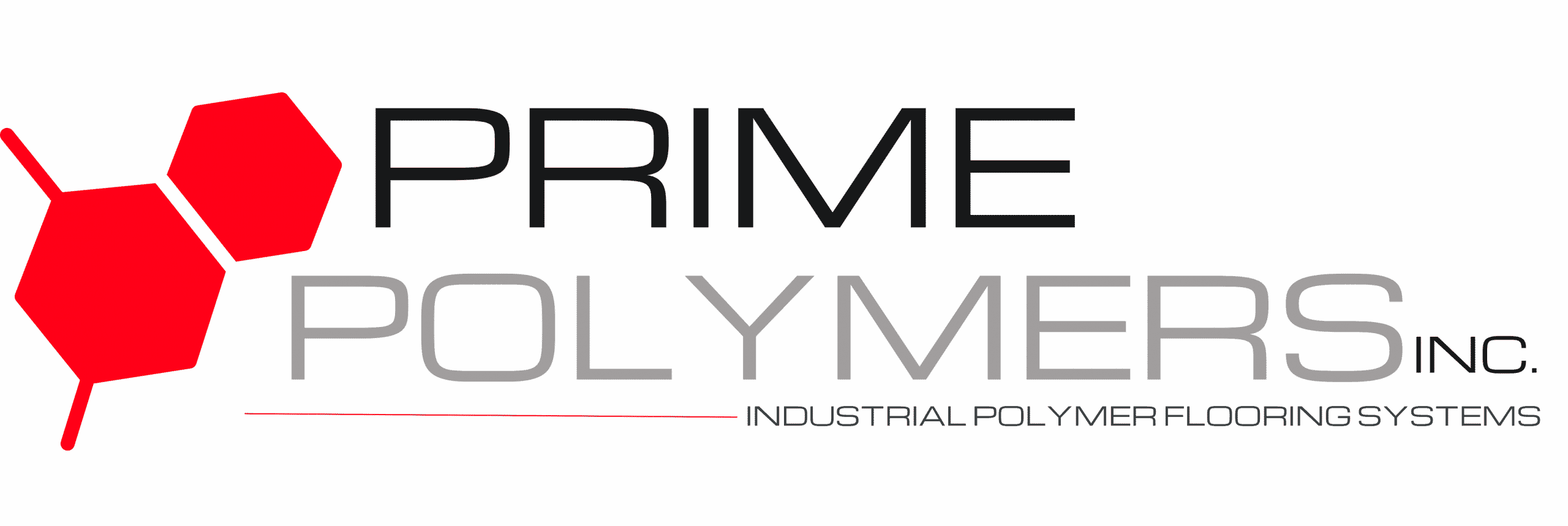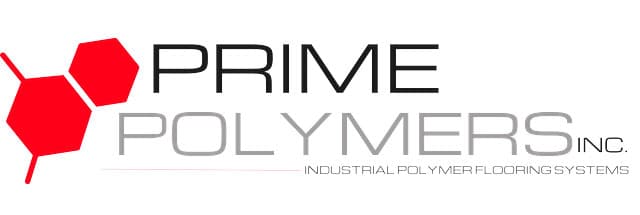Chemical Resistant Flooring
What does chemical resistance mean?
Chemical resistance is the strength of a material necessary to protect against chemical attack or solvent reaction. Chemical resistance typically describes to what extent a material can maintain its resistance to harsh chemicals.
A chemical resistance chart (shown below} may be used to see the relative resistance of materials.
As a value engineering manufacturer and installer of chemical resistant epoxy coating, we can tailor-make an epoxy floor product to suit your specific requirements.
Chemical resistance is the ability of a material to withstand chemical attack. A material with high chemical resistance has a far less chance of corrosion. A material with a low chemical resistance generally results in swelling or softening of the material, hence the material loses serviceability. When testing a material for chemical resistance, several critical factors include:
- Temperature
- Concentration of chemicals
- Exposure duration
- Mechanical load
Prime Polymers’ full line of chemical resistant flooring will help prevent damage from exposure to corrosive chemicals. Additionally, our high performance chemical resistant flooring systems will help to ensure your facility, employees, visitors and equipment are safe.
Every Prime Polymer flooring system yields some kind of protection against chemical damage. The industrial flooring experts at Prime Polymers will work with you to determine the best chemical resistant flooring system to install within your budget.
Our epoxy coating installation teams will ensure the job is completed to your utmost satisfaction with as little down time as possible.
If your facility could use chemical resistant floor coating from a highly experience team of flooring experts, give Prime Polymers a call today!
Why Use Chemical Resistant Floors
A business should consider using chemical resistant flooring, specifically chemical resistant coating for several compelling reasons. This type of flooring is designed to protect concrete floors from the potentially detrimental effects of chemical spills.
Protection Against Chemical Spills
Chemical spills can occur in various industrial settings, such as manufacturing plants, laboratories, or chemical processing facilities. These spills can result in corrosive damage to standard concrete floors, compromising their structural integrity and safety. Chemical resistant flooring provides a robust barrier that prevents chemicals from seeping into the concrete and causing damage.
Chemical Attack Mitigation
Many chemicals, especially aggressive or corrosive substances, can gradually deteriorate standard concrete surfaces over time. Chemical resistant coatings or lining systems act as a shield, resisting the corrosive effects of these chemicals. This protection ensures that the concrete slabs maintain their integrity and longevity, reducing the need for costly repairs or replacements.
Durability and Longevity
Heavy-duty environments require flooring solutions that can withstand rigorous use. Chemical resistant flooring is specifically engineered for durability and can endure heavy foot traffic, the movement of heavy machinery, and frequent cleaning. This durability ensures that the flooring remains intact even in demanding industrial settings.
Regulatory Compliance
Depending on the nature of the business and its location, there may be regulatory requirements regarding the containment and management of chemical spills. Chemical resistant flooring aids in meeting these compliance standards by providing a reliable and effective containment system for chemical spills.
Concrete Floors Without Chemical Resistant Epoxy
When chemical spills occur on concrete floors that lack superior chemical resistance, it can lead to a range of significant problems and challenges.
Deterioration of Concrete
Concrete floors in processing areas are often subjected to exposure to a variety of chemicals, including acids. Without superior chemical resistance, these chemicals can penetrate the concrete’s porous surface. As a result, the concrete begins to deteriorate over time, losing its structural form.
Safety Hazards
A chemical spill on a non-resistant concrete floor poses immediate safety risks. The spilled chemicals can create slippery surfaces, increasing the likelihood of accidents and injuries among employees working in the area.
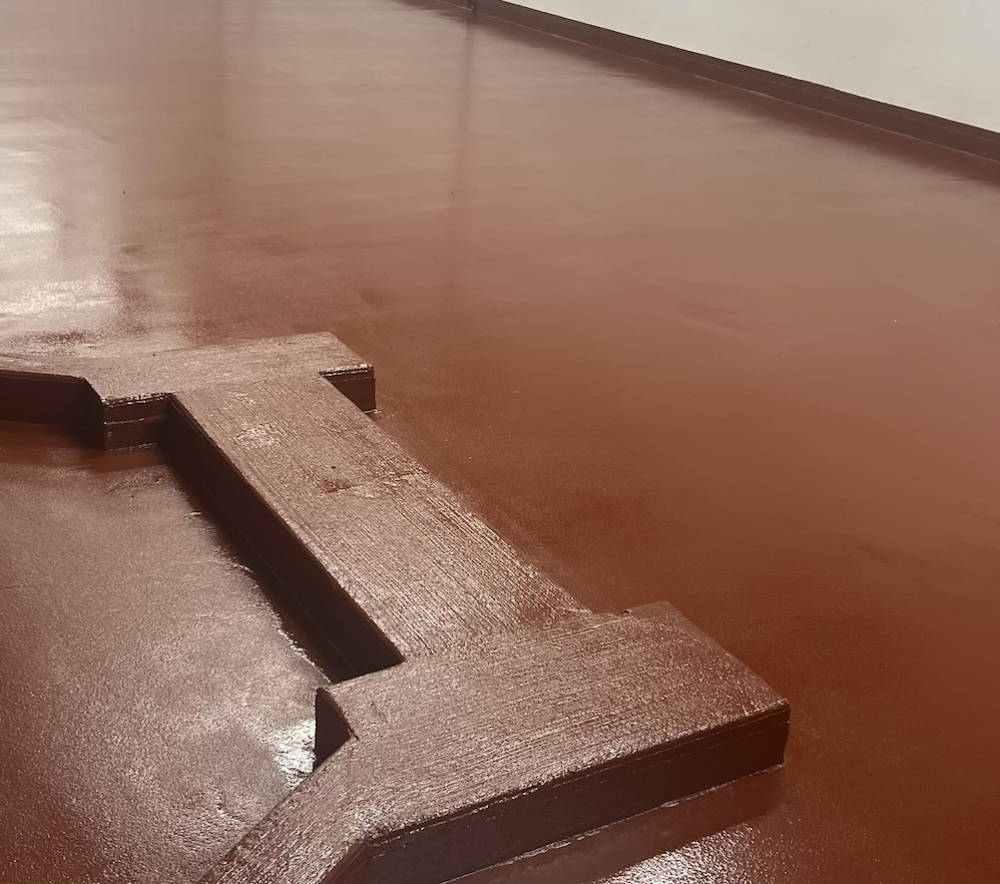
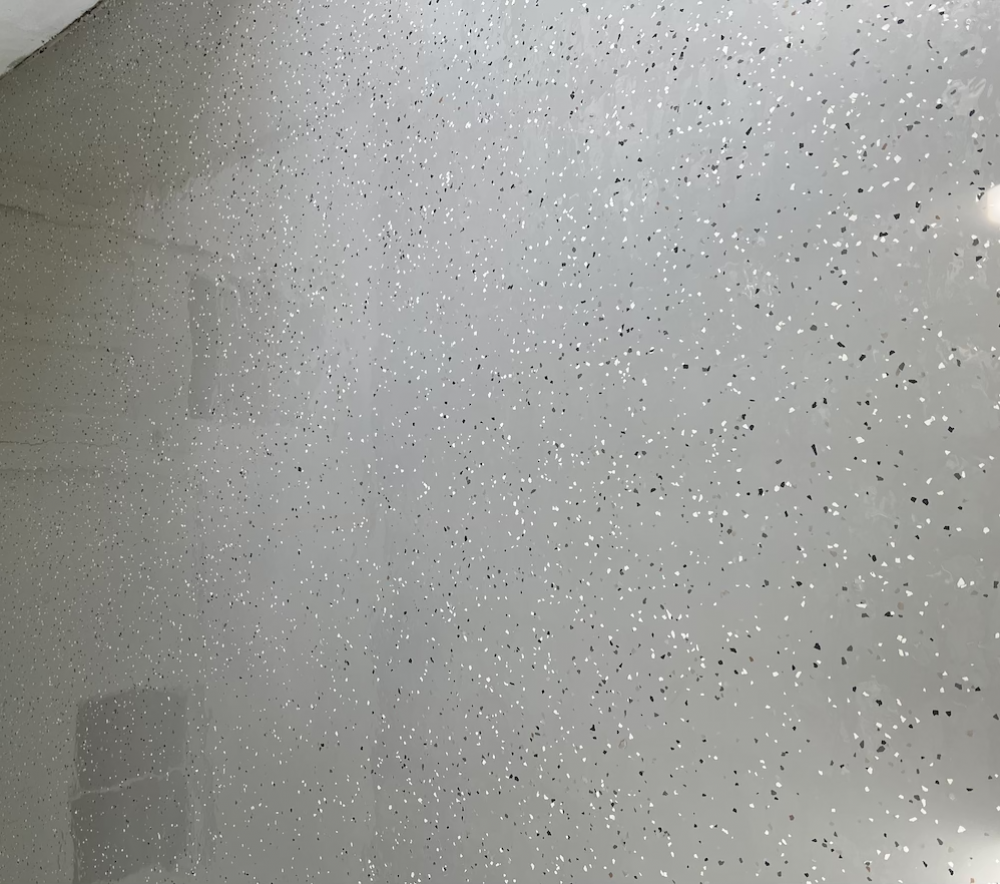
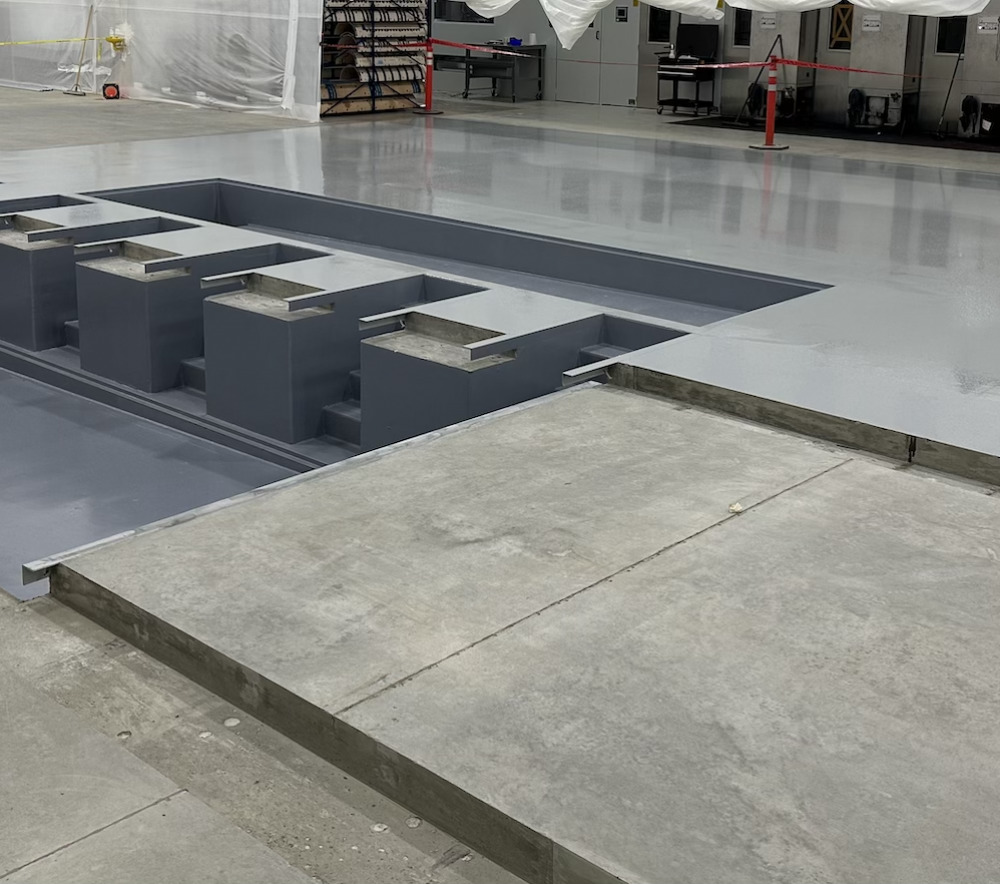
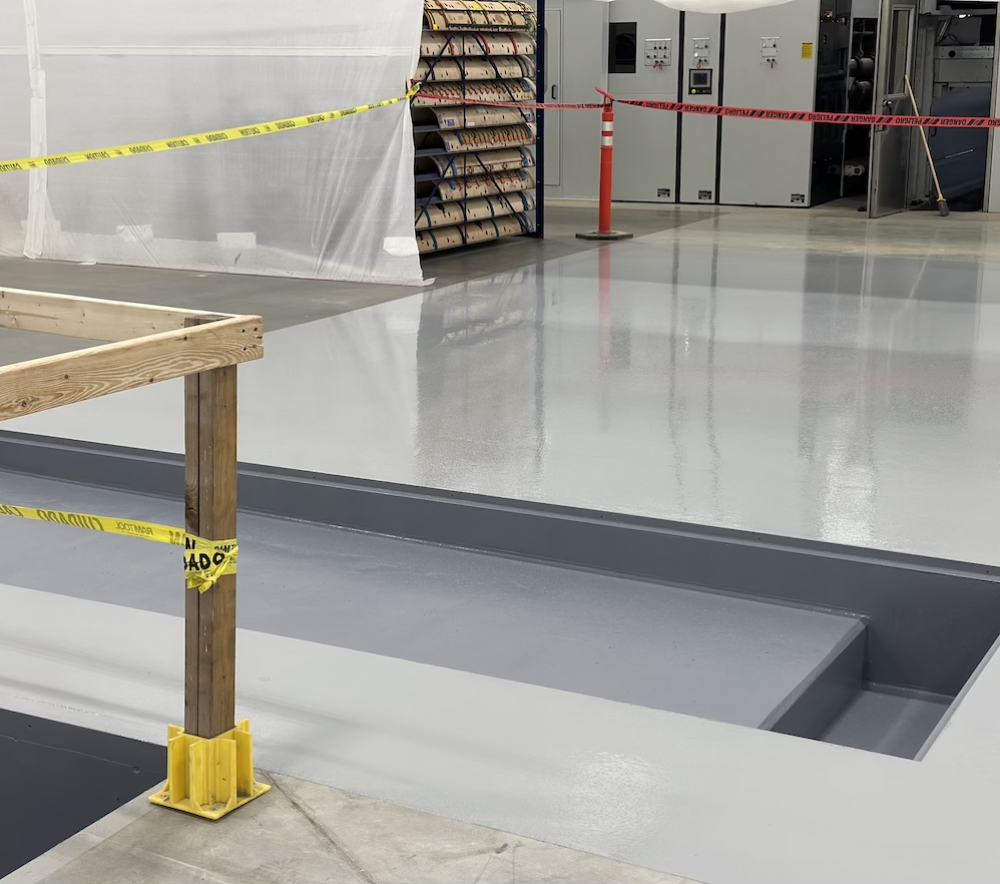
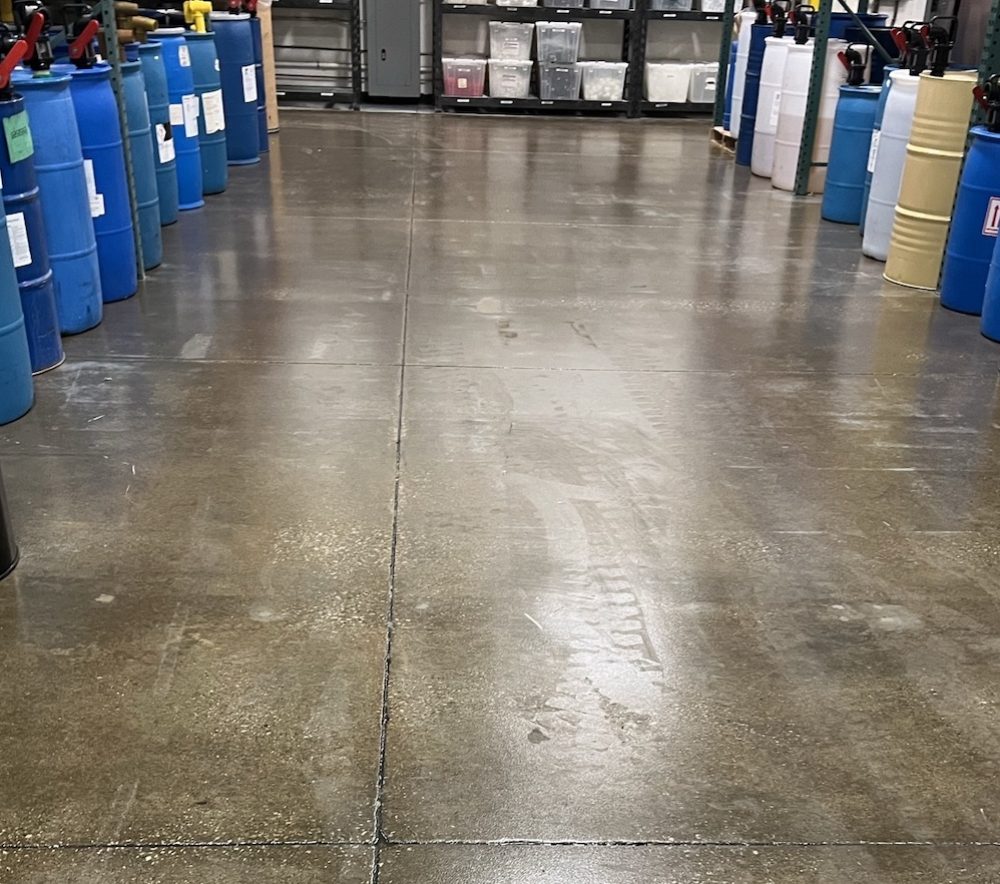
Environmental Concerns
In addition to safety concerns, chemical spills that occur on non-resistant concrete floors can lead to environmental issues. The chemicals may seep into the ground, potentially contaminating soil and groundwater. This may result in environmental cleanup and remediation costs, along with potential legal and regulatory repercussions.
Maintenance and Repair Costs
Addressing the damage caused by chemical spills on non-resistant concrete floors can be costly. Repairs or replacement may be necessary to restore the flooring’s integrity and safety. This can result in downtime for the business, impacting productivity and profitability.
Ineffective Cleanup
Non-resistant concrete floors are challenging to clean thoroughly after a chemical spill. Residual chemicals may remain embedded in the porous surface, posing ongoing risks. In contrast, epoxy flooring, known for its superior chemical resistance, facilitates more effective and efficient cleanup, reducing the risk of lingering chemical hazards.
When chemical spills affect concrete floors without superior chemical resistance, it can result in a range of problems. Problems including concrete deterioration, safety hazards, environmental concerns, increased maintenance costs, ineffective cleanup, and long-term financial implications. Opting for epoxy coatings with superior chemical resistance is a proactive approach to mitigate these issues. It will help preserve the durability and safety of the flooring in processing areas where exposure to chemicals, including acid, is common.
Advantages of a Epoxy Floor Coatings
Chemical resistant epoxy floor coating offer a multitude of advantages, making them a popular choice for a variety of industrial and commercial settings.
- Superior Chemical Resistance: Renowned for their exceptional resistance to a wide range of chemicals, epoxy floors are resistant to acids, solvents, oils, and caustic substances.
- Durability: Epoxy flooring is incredibly durable and can withstand heavy foot traffic, the movement of machinery, and impact from heavy objects. This durability makes it ideal for high-traffic areas in industrial and commercial facilities.
- Easy Maintenance: These floors are smooth and non-porous, making them easy to clean and maintain. Spills can be wiped up quickly, and regular cleaning routines are straightforward, reducing maintenance costs and downtime.
- Resistance to Wear and Tear: Highly resistant to wear and tear, even in demanding environments, epoxy floors can endure abrasion, making them suitable for settings where heavy equipment or vehicles are used.
- Customizability: There are a wide range of customization options. It can be tailored to match specific aesthetic preferences, including various colors, patterns, and textures. This versatility allows businesses to create a visually appealing workspace.
- Seamless and Hygienic: Epoxy floors can be installed seamlessly, eliminating seams or joints where dirt and contaminants could accumulate. This feature enhances hygiene and makes epoxy floors an excellent choice for industries with strict cleanliness requirements, such as food processing or pharmaceuticals.
- Improved Safety: The flooring can be enhanced with slip-resistant additives, improving safety in areas prone to wet conditions. This is especially valuable in industrial kitchens, laboratories, and production facilities.
- Chemical and Thermal Resistance: In addition to chemical resistance, epoxy floors also exhibit thermal resistance. They can withstand high temperatures without warping or degrading, making them suitable for environments with elevated heat levels.
- Longevity: Epoxy floors have a long service life when properly maintained. They can withstand heavy use for many years, offering a cost-effective flooring solution in the long term.
- Environmental Benefits: Some epoxy flooring options are low in volatile organic compounds (VOCs), contributing to better indoor air quality and making them environmentally friendly choices.
- Versatility: The versatility of this flooring allows it to be applied to various substrates, including concrete, wood, and metal. This adaptability allows businesses to use epoxy in a variety of spaces.
Call Prime Polymers Today for a Free Consultation
